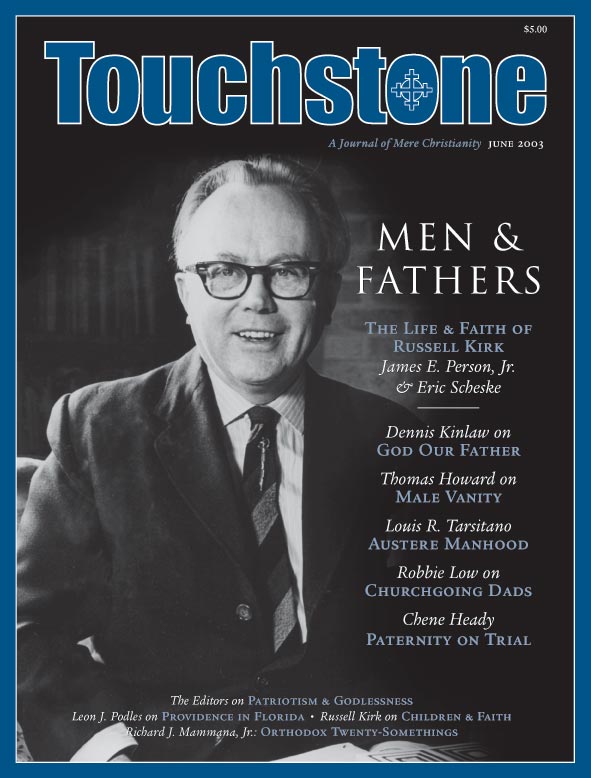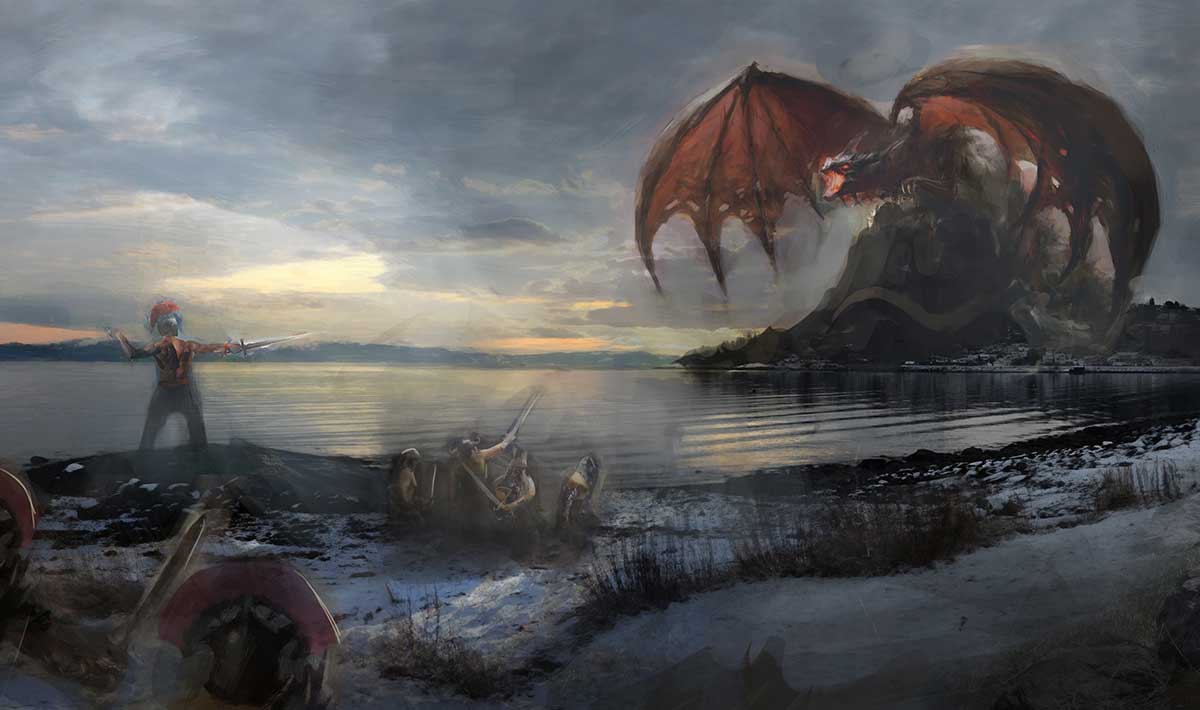American Reservists
Last March, Eugene McCarthy compared President Bush to the ancient Romans, who attacked northern Africa “because they needed something to do.” He seems to have tossed off the remark without much thought, but the story of Rome’s war on Carthage is more relevant to our situation than he may have realized.
The people of Carthage were “practical” and “efficient” and therefore devil worshippers, G. K. Chesterton wrote in chapter seven of The Everlasting Man. “There was a tendency in those hungry for practical results, apart from poetical results, to call upon spirits of terror and compulsion; to move Acheron in despair of bending the Gods. There is always a sort of dim idea that these darker powers will really do things, with no nonsense about it.”
In Carthage, “the god who got things done bore the name of Moloch, who was perhaps identical with the other deity whom we know as Baal, the Lord.” Moloch required those who wanted to win his favor to toss infants into a red-hot furnace. This, Chesterton argued, so revolted the Romans that they destroyed Carthage, leaving no stone upon another and sowing the fields with salt. They were not very good men themselves, but they knew and hated such evil.
McCarthy erred, if Chesterton is right, in thinking that the Romans fought with Carthage because they had nothing else to do. “If the Romans were ruthless,” Chesterton concluded, “it was in a true sense to an enemy, and certainly not merely a rival. They remembered not trade routes and regulations, but the faces of sneering men; and hated the hateful soul of Carthage.”
The Current War
In the current war—the allied troops have won Baghdad as I write—Americans may well think of themselves as the Romans and of Hussein’s regime (though not the Iraqi people) as the Carthaginians. Americans have a certain rough-and-ready moral sensibility that rebels against such Molochian regimes, which offer Moloch their own sacrifices of the vulnerable and the innocent. Hussein’s was—was, in this case, the sweetest of words—a regime happy to sacrifice its own people, to starve them, gas them, shoot them, bomb them, torture them, feed them into plastic shredders feet first and toss their children into dungeons.
Americans feel—not consistently, not always altruistically, but often—that these things should not be. Sometimes this often latent or dormant moral sense rises to action. It often does, as today, when we think our own life is at stake, but a moral sense is not the less genuine or effective for being mixed with a desire to protect one’s nation from danger. As the President found, the liberation of Iraq was the winning argument in convincing a hesitant nation to support the war.
Those on the left and right who speak as if the war were being waged only from the basest of motives have misunderstood something about the American character. Certainly militarists and bigots and “chickenhawk” romantics wanted the war for the wrong reasons, but they are not the only people in favor, and their motives may not have been unmixed. Many Americans simply think that we must remove such a man from power, and if possible from this world. We remembered not oil wells, but the face of a sneering man, and hated the hateful soul of Hussein.
But we must think of America as Carthage as well as Rome. And indeed, the parallel is even more obvious in our case than in Hussein’s. We have our own public worship of Moloch, and in this country his rites take much the same form as they did in Carthage.
In America, over one million children are murdered before birth each year, and to do so is legal and has been legal for thirty years. Some high percentage of Americans—10 percent? 15 percent? 20 percent?—have had or sponsored abortions. Since 1973, perhaps 42 million Americans have been killed before birth—one for just every seven Americans alive. A majority of the nation’s elected political leaders and of its highest court have consistently held that the murder of the unborn is a public good. At various times the American government has pushed the practice on the rest of the world and used its economic power to override the moral sensibilities of smaller, weaker nations.
One of the country’s two main political parties is dedicated to defending this “right” in all circumstances, and most of its members and almost all of its leaders will defend the murder of the baby even when he is almost born. The other party is officially opposed, but its practice is sometimes equivocal, and it is happy to have among its leadership and under its “big tent” those who favor the “right” of abortion.
David Mills has been editor of Touchstone and executive editor of First Things. He edits the opinion page of the Pittsburgh Post-Gazette.
subscription options
Order
Print/Online Subscription

Get six issues (one year) of Touchstone PLUS full online access including pdf downloads for only $39.95. That's only $3.34 per month!
Order
Online Only
Subscription

Get a one-year full-access subscription to the Touchstone online archives for only $19.95. That's only $1.66 per month!
bulk subscriptions
Order Touchstone subscriptions in bulk and save $10 per sub! Each subscription includes 6 issues of Touchstone plus full online access to touchstonemag.com—including archives, videos, and pdf downloads of recent issues for only $29.95 each! Great for churches or study groups.
Transactions will be processed on a secure server.
more from the online archives
calling all readers
Please Donate
"There are magazines worth reading but few worth saving . . . Touchstone is just such a magazine."
—Alice von Hildebrand
"Here we do not concede one square millimeter of territory to falsehood, folly, contemporary sentimentality, or fashion. We speak the truth, and let God be our judge. . . . Touchstone is the one committedly Christian conservative journal."
—Anthony Esolen, Touchstone senior editor










